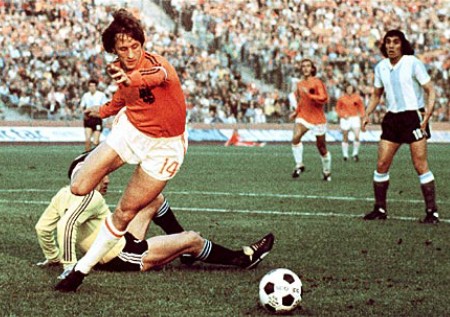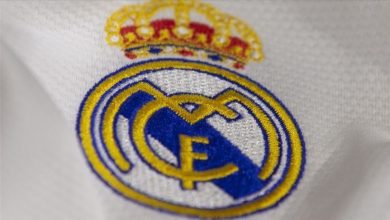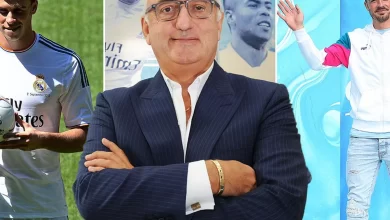
Barcelona could present a 65th birthday gift to Total Football legend Johan Cruyff with a victory over Neo Catanaccio masters Chelsea. NationalTurk salutes and wishes Johan Cruyff a happy birthday.
Barcelona / NationalTurk – Johan Cruyff is among the top ten greatest player all time for most football fanatics. Johan Cruyff real name is Hendrik Johannes Cruijff or in short Johan Cruijff. No doubt Johan Cruyff is still the best Dutch soccer player of all time.
No one thinks any of today’s players has his great soccer skill. He had a very good dribbling and shooting skill for a striker but it was his football IQ which puts him ahead of many big footballers.
The Total Footballer: Johan Cruyff
Total football envisions a game of complete fluidity with no footballer locked into any one position on the field, but rather gracefully transitioning from an attacker to a midfielder to a defender and back again, as the flow of the game demands. Total football is a game of flow and beauty.
To many coaches and supporters, this was a laughable concept, knowing it would be futile to attempt such a thing in a game of specialization with the glaring strengths and weaknesses of individual players. The ideal of a total footballer seemed like a myth….then they saw Johan Cruyff.
Johan Cruyff was the embodiment of total football
Technically, Johan Cruyff played as an attacking forward for Ajax, FC Barcelona, the Dutch National Team and others. In reality, he played anywhere on the pitch, frequently disorienting his markers. And with even a little space, he was deadly due to a deft touch and blazing speed. However, what really separated Cruyff and made him one of the best to ever play the game was his amazing sense to know where his teammates were in the attack, and keen ability to find them with precise passes.
Even when a defender was able to mark Cruyff, it was usually a hopeless endeavor. Included in his array of moves was the famed “Cruyff Turn,” where the Dutch superstar would move down the side of the pitch, appearing to look to pass or cross. However, as he approached the ball with the inside of his foot, he would drag the ball behind his planted foot and turn through 180 degrees, before escaping on the outside of the defender.
David Miller, the esteemed former sportswriter of The Times of London, christened Cruyff as ‘ Pythagoras in boots ‘. ‘ Few have been able to exact, both physically and mentally, such mesmeric control on a match from one penalty area to another,’ Miller wrote. Ironically, while Johan Cruyff was always in control of the ball, his temper was sometimes volatile and his opinion always available, whether it was wanted or not.
Under the guidance of his coach and mentor Rinus Michels, the “father of total football,” Johan Cruyff—joined by talented teammates Piet Keizer, Wim Suurbier and Barry Hulshoff—led an era of Ajax domination in the Eredivisie and Europe. From 1966 to 1973, De Godenzonen claimed six league titles, four national KNVB-Becker Cups, three European Cups, one European Super Cup, and one World Club Cup. While it was a versatile and talented team, there was little doubt who the star was, with Cruyff named European Footballer of the Year in ’71 and ’73. It was at the beginning of the season of his first European honor, after returning from an injury, that he donned his famed No 14, which has become synonymous with Johan Cruyff. Building on the legacy of his mentor Rinus Michels, Cruyff proved himself the most unrelenting apostle of attacking football in the history of the game. Possession of the ball played a crucial part in his football philosophy. Cruyff abhorred the overly physical game that was dominant in the 1980’s. He instructed his players not to go running mindlessly up and down the pitch, but to concentrate on combination play and let the ball do the work instead.
Johan Cruyff Biography : Highlights from the life of a football legend
[media id=512 width=610 height=340]However, this golden era of Ajax came to a halt when Cruyff left for FC Barcelona. Some say, according to Planet World Cup, he left due to the disappointment of losing his captaincy to Keizer. Other say he was simply following Michels, who had taken over Barça late in 1971. Either way, he left a gaping hole at Ajax and had an immediate impact on Barcelona, which captured its first La Liga title in 14 years upon Cruyff’s arrival.
With all of his accomplishments, 1974 gave Cruyff the ultimate stage: the World Cup.
While his status with the Dutch national team was jeopardized early in his career—he was suspended for a year after being the first Dutch player to receive a red card during a friendly against Czechoslovakia—Holland understood that Rinus Michels would build its team around Cruyff. And with his mentor at the helm and Cruyff on the verge of another European Player of the Year honor, it seemed the Oranje was at the height of its powers.
After winning its group, Holland put on impressive displays, winning 2-0 over East Germany, 4-0 over Argentina, and 2-0 over three-time winner Brazil. Clearly displaying the most skills of any team in the tournament, the Oranje advanced to the final to face their hosts, the clinical and efficient West Germany.
In the beginning, it seemed that total football would rule the day. The International Football Hall of Fame (IFHOF) describes “in the opening minute Holland broke away. There were 15 consecutive passes before Cruyff went round (West German Berti) Vogts as if he were invisible. He raced into the box where (Uli) Hoeness lunged and broght him down. Penalty. 1-0. The Germans hadn’t even touched the ball. It was the most amazing start ever to a World Cup Final.” However, the Germans would not retire easily. Soon, Vogts began to control Cruyff and the Dutch lost control of the match, falling 2-1. It was a crushing defeat for Holland, which suffered only its second loss in three years, a span of 24 games. And then came the remark ‘ Football is game won by Germans ‘
Surprisingly, Cruyff retired from international play prior to the ’78 World Cup in Argentina. In only 48 game, he scored a record 33 goals. It inspired BBC to declare Cruyff as “the best player never to win a World Cup.”
While Johan Cruyff may have stepped down from international competition, his desire to continue to play took him to the U.S. and Los Angeles Aztecs of the star-studded (albeit fading stars) North American Soccer League. Even among some of the biggest names in football history, Johan Cruyff made his mark, earning league MVP honors in 1979. He joined the NASL’s Washington Diplomats the following year before returning to Europe.
After a brief stop with Levante, a second division Spanish squad, he returned to Ajax in December 1981, scoring the first goal in a 4-1 victory over Haarlem. “Pythagoras in boots” would go on to lead Ajax league titles in the 1981-1982 and 1982-1983 seasons, and another KNVB-Beker Cup in the latter.
Johan Cruyff playing for Feyenoord is like Pope become Jehovah’s witness !
Then the unthinkable happened. After Ajax failed to offer him a contract, an angry and offended Cruyff agreed to play for archrival Feyenoord. ‘ It was as if the Pope had become a Jehovah’s Witness,’ IFHOF describes the response of Ajax supporters. To make it worse for Ajax, Cruyff’s brilliance continued, returning Feyenoord to its first Championship in a decade, and winning the KNVB-Beker Cup.
The following season, Cruyff returned to Ajax, but this time as manager. While he lacked formal qualification, this time his outspoken nature served him well. According to TotalFootballForums.com, “he came down from the stands during a Dutch league game and started handing out unsolicited advice to Ajax coach Leo Beenhakker instructing him to bring on Frank Rijkaard. The baffled Beenhakker let Cruyff take over control and Ajax, who were down 3-1 to FC Twente at that moment, ended up winning the game 5-3.”
While he did not have proper certifications to coach even a reserve team, the Ajax brass turned over the keys to Cruyff, who from ’85 to ‘87 led De Godenzonen to a 62-7-17 record and a 1987 European Cup. After becoming frustrated with Ajax, he quit to take over FC Barcelona, leading a star-studded team to four La Liga titles as they became a European powerhouse. With 11 trophies, he is the most successful and longest serving manager in club history.
The stress of management took its toll on Cruyff’s health, not to mention the reported 20 cigarettes a day he used to smoke, according to TotalFootballForum.com. It resulted in double bypass heart surgery during the ’91 Barcelona season. However, what really brought an end to his coaching career was a lack of victories. IFHOF notes that “in 1996 with Barcelona out of the running in the Championship for the second consecutive season the Barça bosses felt they had had enough of Cruyff’s autocratic ways.”
However, a couple of less successful seasons did little to diminish Cruyff’s reputation. In February 2008, it appeared as if Cruyff would be returning to Ajax as technical director. However, according to Reuters, conflict between Cruyff and Ajax manager Marco van Basten undermined the arrangement before it could even get started.
It seemed Cruyff saw his own future, as he is once again at arms length from Ajax. But through the prism of history, Cruyff will always intertwine with Ajax and the legacy of total football.
[adrotate banner=”42″]

